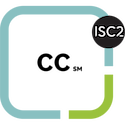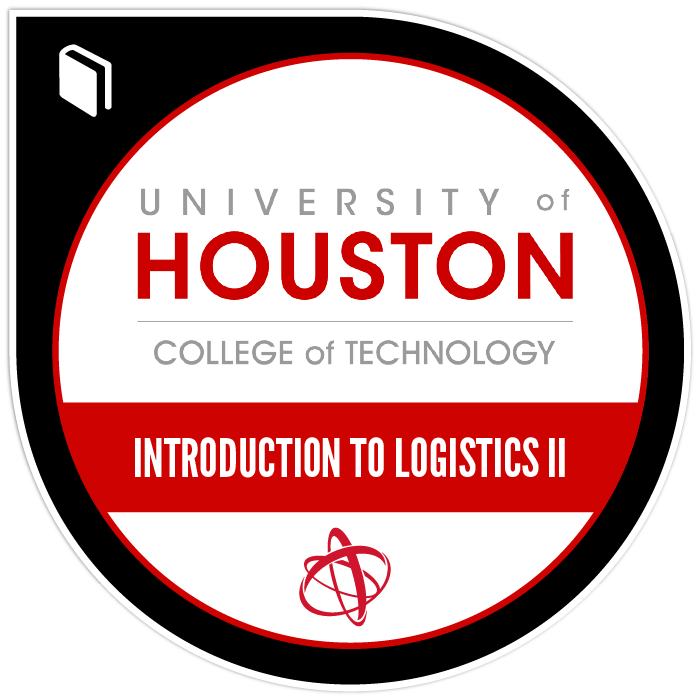Education
Bachelor of Science: Computer Information Systems
University of Houston, Houston, TX
Concentrations: Information Security; Minor in Business
05/2024
Degree Focus:
The strategic planning, development, and management of information systems to align with business objectives and seamless integration with operational processes to facilitate efficient decision-making.
Courses
Expand to view courses
keyboard_arrow_down
Associate of Science: Computer Science
Houston Community College, Houston, TX
08/2020
Courses
Expand to view courses
keyboard_arrow_down
Certifications & Other Training

Certified in Cybersecurity (CC)
ISC2
July 2024
Fundamental security principles and operations, network security and access controls.
Skills:
- Access Control Concepts,
- Business Continuity (BC) Concepts,
- Disaster Recovery (DR) Concepts,
- Incident Response Concepts,
- Network Security,
- Security Operations, and
- Security Principles

Introduction to Logistics II Certificate
University of Houston and The Chartered Institute of Logistics and Transport
July 2021
An introduction to the concept of logistics in its broadest sense and to some of the general practices that are important in every part of the logistics working environment: understanding people in the working environment, sustainability, the environment, and communications technology.
Skills:
- Health & Safety,
- Information Communication Technology And Logistics,
- Sustainable Logistics Practices, and
- Total Cost Approach.
The 7 Habits of Highly Effective People (Signature Edition 4.0)
Franklin Covey South Africa
July 2014
A comprehensive personal leadership development program that integrates timeless effectiveness principles with modern technology and practices.
Skills:
- Productivity,
- Communication,
- Relationships, and
- Influence within the organization.

Positive Power and Influence® Program (PPIP®)
Sep Serfontein Consulting in collaboration with THE INFLUENCE */CO
June 2014
The Positive Power and Influence program enhances individuals' ability to influence others effectively and positively within an organization.
Skills:
- Situational Influence Model: emphasizes adapting influence styles to specific situations,
- Influence Styles and Flexibility: Assess current influence styles, diagnose influence situations, and develop strategic Influence Action Plans,
- Emotional Intelligence: Developing emotional intelligence to remain objective in challenging situations and build important work relationships,
- Practical Application: Applying the material learned in practice.

Executive Problem Solving
Talentilne Consulting Group
June 2009
Enhancing critical thinking and decision-making skills necessary for navigating complex business challenges and making informed decisions quickly.
Skills:
- Understanding and framing problems effectively,
- Use structured problem-solving techniques to help generate and evaluate solutions systematically,
- Make informed decisions by analyzing complex problems from both quantitative and qualitative perspectives,
- Plan and implement solutions to help overcome resistance to change,
- Communicate effectively and gain support from stakeholders during problem-solving,
- Evaluate the effectiveness of implemented solutions, set goals, monitor outcomes, and apply lessons learned to future challenges, and
- Employ strategies to recognize and overcome cognitive biases in order to make more objective decisions.
Business Communication and Presentation Skills
Bizcomm South Africa
March 2009
Practical methods and skills to enhance communication and presentation proficiency within the business environment.
Skills:
- Delivering impactful presentations,
- Leading discussions and chairing meetings,
- Communicating technical information effectively,
- Information gathering and analysis,
- Identifying target audiences,
- Logical structuring of presentations and reports, and
- Articulate delivery of information,

Root Cause Analysis Technique (RCat)
Internaltional Risk Control Academy (IRCA Global)
April 2008
Practical techniques for collecting evidence and analyzing incidents to identify both immediate and underlying causes.
Skills:
- Causes and consequences of incidents,
- Investigating and Reporting Incidents,
- Importance of Incident Investigations,
- Reconstruction and Re-enactment of Incidents,
- Incident Reports and Action Plans,
- Utilizing Root Cause Analysis Techniques, and
- Legal Requirements for Incident Investigations.

Hazard Identification and Risk Assessment (HIRA)
Internaltional Risk Control Academy (IRCA Global)
June 2008
A systematic approach identifies potential hazards and assesses associated risks within an organization. This proactive measure helps prevent accidents, incidents, and emergencies, ensuring a safer work environment.
Skills:
- Overview of and motivation for hazard identification and risk assessment,
- The risk management and risk assessment process,
- Preparing for a risk assessment,
- Risk assessment scenarios,
- Practical risk evaluation and risk measurement formats,
- The need for and the nature of control measures, and
- Measurement and monitoring of compliance with the control measures.
